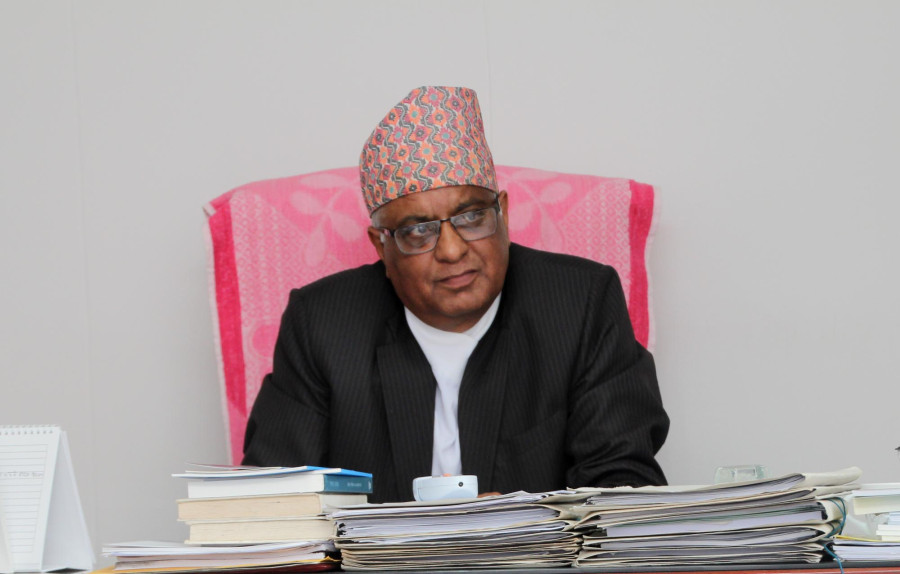National
Prakash Osti runs into controversy for his nod to transitional justice nominations
Osti represented National Human Rights Commission in the committee that nominated officials on Saturday at political parties’ behest.
Binod Ghimire
A National Human Rights Commission representative’s nod to the recommendation committee’s decision to recommend officials in the transitional justice commissions as decided by the political parties has been dragged into controversy.
The five-member recommendation committee led by Om Prakash Mishra, former chief justice, on Saturday had unanimously selected 10 individuals for the Truth and Reconciliation Commission and the Commission of Investigation on Enforced Disappeared Persons.
Prakash Osti represented the constitutional rights watchdog on the committee.
Despite the rights body saying that its representative would not agree on the recommendation committee decision if it is taken as per the parties’ order, Osti decided to give his nod.
Human rights defenders and the victims of the decade-long insurgency had been demanding that the commission withdraw its representative from the recommendation committee, saying it was working at the behest of the political parties.
Anup Raj Sharma, the chairperson of the commission, had said he had asked Osti to return if he felt there was political intervention in the selection process.
“I had clearly told him (Osti) to refrain from the recommendation process if the committee fails to make the decision independently,” Sharma told the Post.
The other members of the commission also believe that Osti compromised on the stance the commission has maintained on the transitional justice issue.
The commission has been saying for long that an amendment to the Enforced Disappeared Enquiry and the Truth and Reconciliation Commission Act 2014 is a must in line with the 2015 Supreme Court ruling that the transitional justice has to be victim-centric. “However, Osti compromised on the principle by endorsing the names that were selected politically,” Mohna Ansari, a member of the commission, told Post. “It is surprising that he ignored the chief commissioner’s call. Sharma had even handed him a letter, asking him to return from the committee.”
According to Ansari, Sharma on November 24 had given a letter to this effect.
Osti, however, said he hadn’t received any letter.
“The letter was given to the Law Ministry while recommending my name to the recommendation committee. The commission has to adopt the process while withdrawing my name, which was never done,” Osti told the Post. “Just like I could not have represented the commission on my wish, I could not return from the committee.”
A senior official at the commission, however, said Sharma had verbally told Osti to return from the committee if he wanted.
The commission is yet to take a position on the recommendation process as its chairperson and members are currently out of Kathmandu.
“I will call a meeting after all the members arrive in Kathmandu,” said Sharma. “We will also listen to what Osti has to say,” Sharma told the Post.
Human rights defenders and conflict victims said the commission representative deceived them by endorsing the names that were selected without following a due process.
“We had hoped Osti would stand against any political interference. But he failed to live up to our expectations,” Charan Prasai, a human rights defender, told the Post.
The committee on Saturday picked Ganesh Datta Bhatta, an associate professor at Nepal Law Campus, as the chairperson of the truth commission from the Nepali Congress’s quota and Yubraj Subedi, former joint attorney, to lead disappearance commission from the Nepal Communist Party’s quota. Among the four members in the truth commission, three are from the ruling NCP while the main opposition, Congress, has three members in the disappearance commission. All the members in both commissions are advocates. The chairpersons and members of the commissions assumed office on Thursday after taking the oath.




 20.12°C Kathmandu
20.12°C Kathmandu














